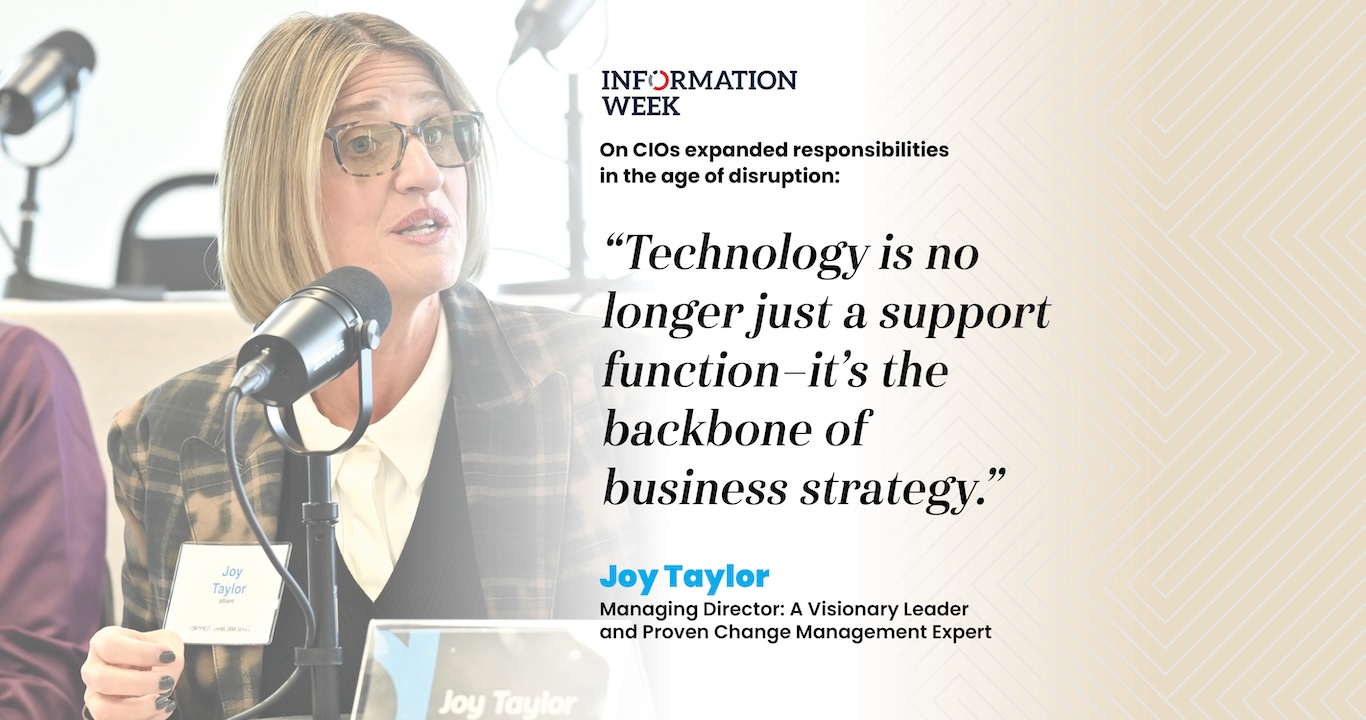
Time continues to erode the CIO’s need to be hands-on, technically gifted, and decidedly geeky. Now, with their skills becoming increasingly redundant, the question becomes whether the role itself is antiquated.
Change may be the only constant, but disruption is ruling this age. And it’s not just AI that’s breaking things. Economic uncertainty, political tension, market shifts, and fluctuating tariffs are wreaking havoc around the world. Jobs are lost in layoffs, business closures and bankruptcies, and AI realignments. So where does all that leave chief information officers? Are their jobs at risk too?
Certainly, the ground under the CIOs feet isn’t as solid as it used to be.
“With companies increasingly adopting a more integrated tech strategy across all departments, the traditional role of the CIO is getting reevaluated. Tech isn’t just managed by one department anymore — it’s everywhere,” says Hone John Tito, co-founder of Game Host Bros, a server hosting services company for gaming networks.
“It’s clear that businesses are prioritizing flexibility, where leadership is less about managing systems and more about driving innovation across all areas. This shift could be why some companies are eliminating the role entirely or considering it,” Tito adds.
To Be or Not To Be, That Is the Question for Every CIO
The CIO role has substantially changed over the decades in some ways. In others, not so much.
“In 2016, when I transitioned from the role of CDO to CTO of Staples, we brought a CIO into my team alongside the CDO and CISO. Even then, the CIO wasn’t positioned to lead digital experiences across the enterprise,” says Faisal Masud, president at WW Digital Services at HP.
“The primary distinction lies in the core responsibilities: Today’s CIO focuses on aligning IT needs with business strategy and enhancing operational efficiency. In contrast, the CDO role emphasizes customer experience, technological innovation, and transformation,” Masud adds.
In the early days, CIOs were innovators and inventors with a sharp talent in mastering technologies. It wasn’t uncommon for a CIO to develop proprietary technology for the company as the need for such arose.
Later, and largely for economic reasons, technologies were bought commercially and were usable “out of the box.” Later still, they were purchased in the cloud as SaaS.
“The traditional CIO role, rooted in vendor management and centralized IT deployment, has been steadily shrinking since the rise of SaaS. Business units now often bypass IT to buy their own tools, reducing the CIO’s direct control,” says Rajan Goyal, CEO of DataPelago, a universal data processing engine. Formerly, Goyal was CTO at Fungible, a data center hardware and software developer, which has since sold to Microsoft.
Time continues to erode the CIO’s need to be hands-on, technically gifted and decidedly geeky. Now, with their skills becoming increasingly redundant, the question becomes whether the role itself is antiquated.
“The elimination of the CIO position is a part of the technology evolution. Companies are recognizing that technology is no longer just a support function, but the backbone of business strategy, meaning that companies simply need someone with broader experience outside of the IT function,” says Joy Taylor, managing director of consulting at alliant, a management consulting firm.
But Taylor doesn’t see the CIO role disappearing from company rosters entirely.
“I don’t see replacement happening, but rather a transformation of the CIO role. In many organizations, CIOs are taking on expanded responsibilities that reflect their growing strategic importance. Rather than being replaced, the role is being elevated and integrated more deeply into the business leadership team,” Taylor explains.
Others agree that the role is changing, and maybe the title, too, but the duties are expanding rather than evaporating. However, they don’t necessarily see that happening in the same way that Taylor does.
“If the CIO role goes away, it’s mostly going to be about labeling. A CIO’s work is only becoming more central to how most businesses operate, so if a CIO isn’t handling these tasks, someone else in your IT or data infrastructure will have to manage it,” says Jonathan Palley, CEO of QR Codes Unlimited, a QR code platform.
Whether you agree with Taylor’s take or Palley’s, or see room for both, the CIO role as it’s historically defined is decidedly dead.
“It’s part of a broader shift, not a passing trend. As tech becomes central to every function, some CEOs question the need for a standalone CIO. If the CIO isn’t driving commercial outcomes or transformation, the role risks being seen as redundant,” says Rebecca Fox, group CIO at cybersecurity consultancy, NCC Group.

Dhaval Jadav is Chief Executive Officer of alliant, America’s leading consulting and management engineering firm, which helps American businesses overcome the challenges of today to prepare them for the world of the 22nd Century and beyond. Jadav co-founded the firm in 2002 to be unlike any other consultancy, with an emphasis on partnerships with clients to not only identify but also implement quantifiable solutions to their most critical concerns.

Joy Taylor is a Managing Director with alliantConsulting. As a visionary leader and proven change management expert, she isn’t just a consultant; she’s a force of nature in the world of business transformation. With over twenty-five years of cross-functional experience, Joy applied her expertise in program transformations, project leadership, strategy and execution, team facilitation, change management, communication, and Lean Sigma to everything from startups to multibillion-dollar enterprises. Her impressive track record speaks volumes, but her accolades and career milestones set her apart as a critical advisor for CEOs.










